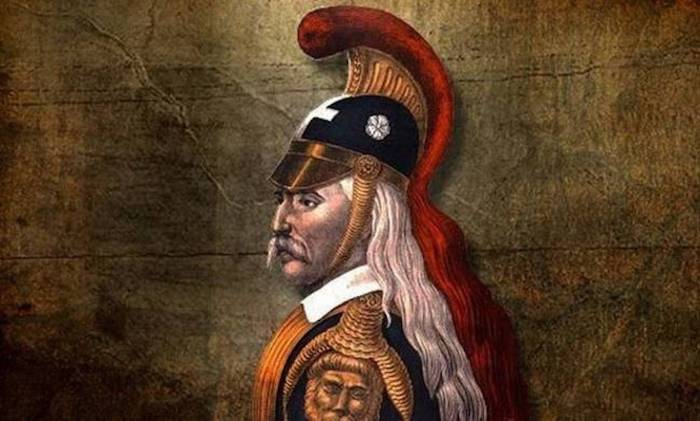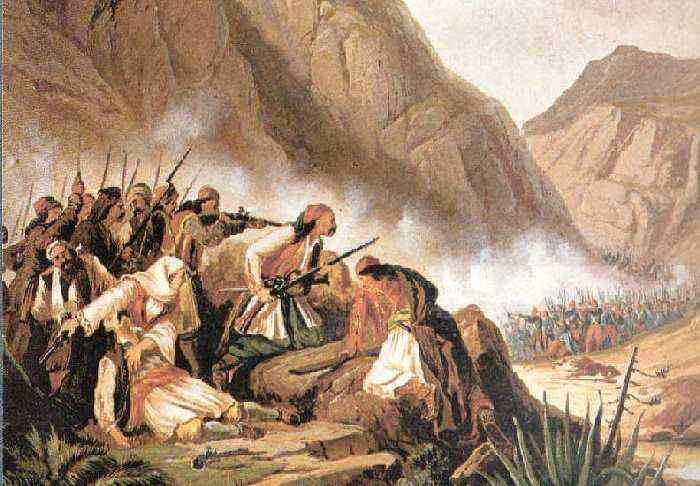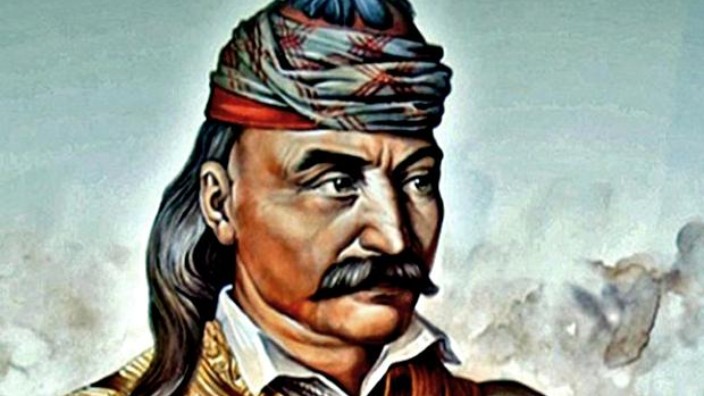Theodoros Kolokotronis was a general and a leading figure of the Greek War for Independence in 1821, as well as a politician and country advisor. He is also known as the Elder of Morias.
To mark the occasion of his birth, we take a look back at his incredible life.
1. Place of Birth:
Kolokotronis was born in Messinia to a well-known family. His father participated in the rebellion supported by Empress Catherine II of Russia in 1770, and was killed along with his two brothers by the Turks.
As a result, Kolokotronis and his mother moved to her hometown in Arkadia, where he was raised. He soon entered the klepth groups of the area and became a captain when he was 15 years old.

2. Liberation of Nafplion:
In April 1821, Greeks attacked the Ottomans in Nafplion and the siege started. According to Kolokotronis’ memoir, thousands of Ottomans died during the battle, while only 100 Greeks died. The siege ended on September 23 and it is now known as the “Fall of Tripolitsa.”
Kolokotronis is said to have ridden his horse up the steep slopes to the castle of Palamidi to celebrate his victory.
He was also famously quoted as saying, “Greeks, God has signed our Liberty and will not go back on his promise.”
3. The Battle of Dervenaki:

On July 28, 1822, the Turkish campaign suffered a huge defeat at the Battle of Dervenaki by a Greek army led by Theodoros Kolokotronis, Dimitrios Ypsilantis, Papaflessas and Nikitaras.
By the summer of 1822, the Ottomans were preparing to move southwards and crush the Greek uprising. The Turkish army under Mahmut Dramali passed through the narrow gorge of Dervenaki and posted no forces where other gorges exposed his flanks.
Kolokotronis pursued a scorched earth policy, aiming at starving the Ottomans out. The Greeks looted the villages, burned the grain and foodstuff they could not move, and damaged the wells and springs.
READ MORE: On This Day: The Expedition of Dramali comes to an end.
Dramali’s army was trapped in the sweltering Argolic plain at the same time as Greek troops surrounded them from all sides.
Dramali dispatched an advance guard consisting of 1,000 Muslim Albanians to occupy the passes. The Greeks brought down devastating fire and then charged, slaying the Ottomans in vicious hand-to-hand fighting. Very few of the Ottoman light cavalry managed to escape.
4. After the war:
Kolokotronis was a big supporter of Kapodistrias and his policies, and was a leader during the events of Otto’s enthronement. However, in 1833, he had a serious conflict with the Regents, eventually sending him and other heroes of the Revolution to prison in Nafplio, charged with treason.
In 1834, he was sentenced to death, but after Otto’s coming of age, he received a royal pardon and became an “Advisor of the Country.”
5. Death:
Kolokotronis died on February 4, 1843 after a stroke, while returning from a celebration at the palace.

